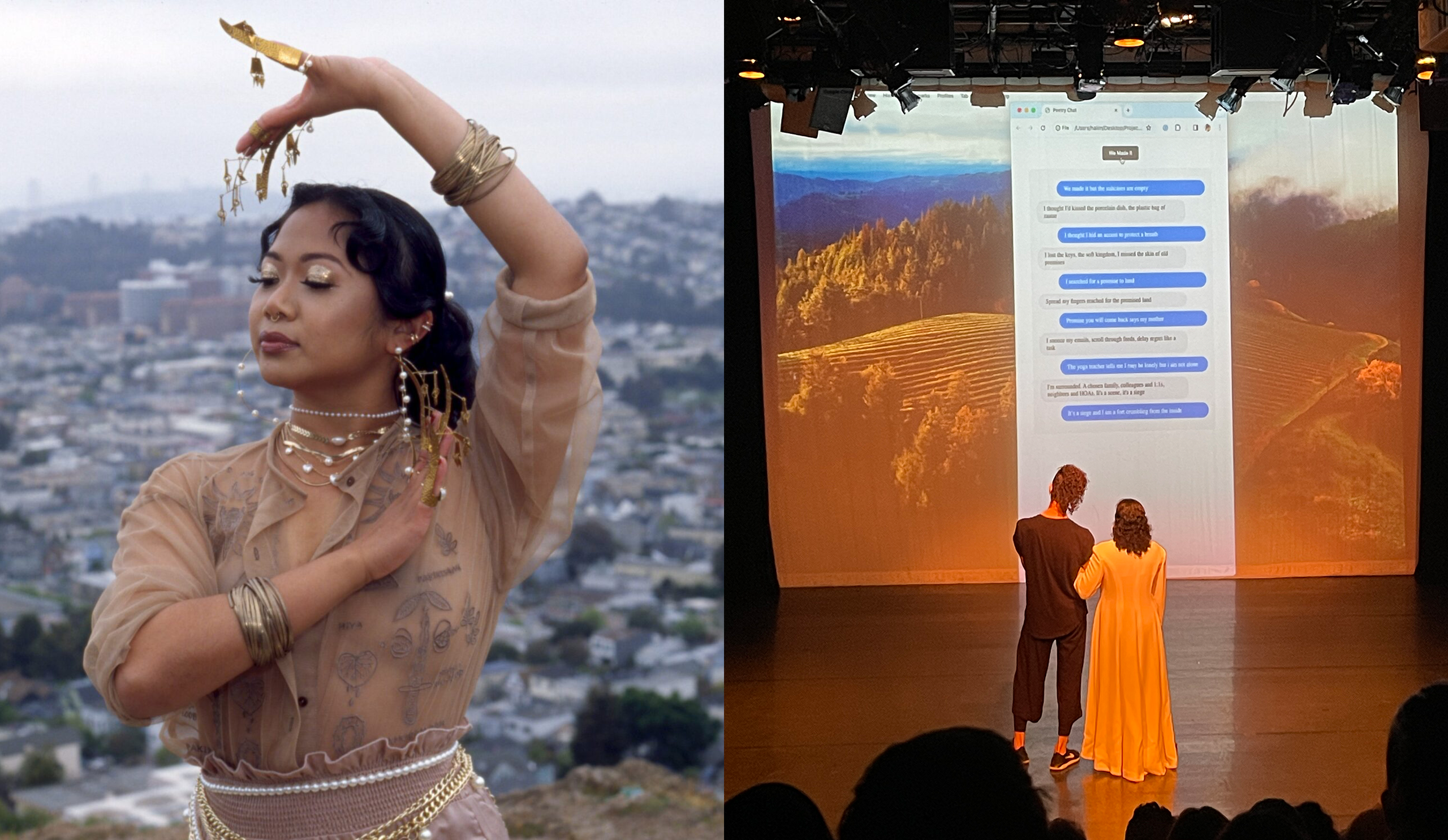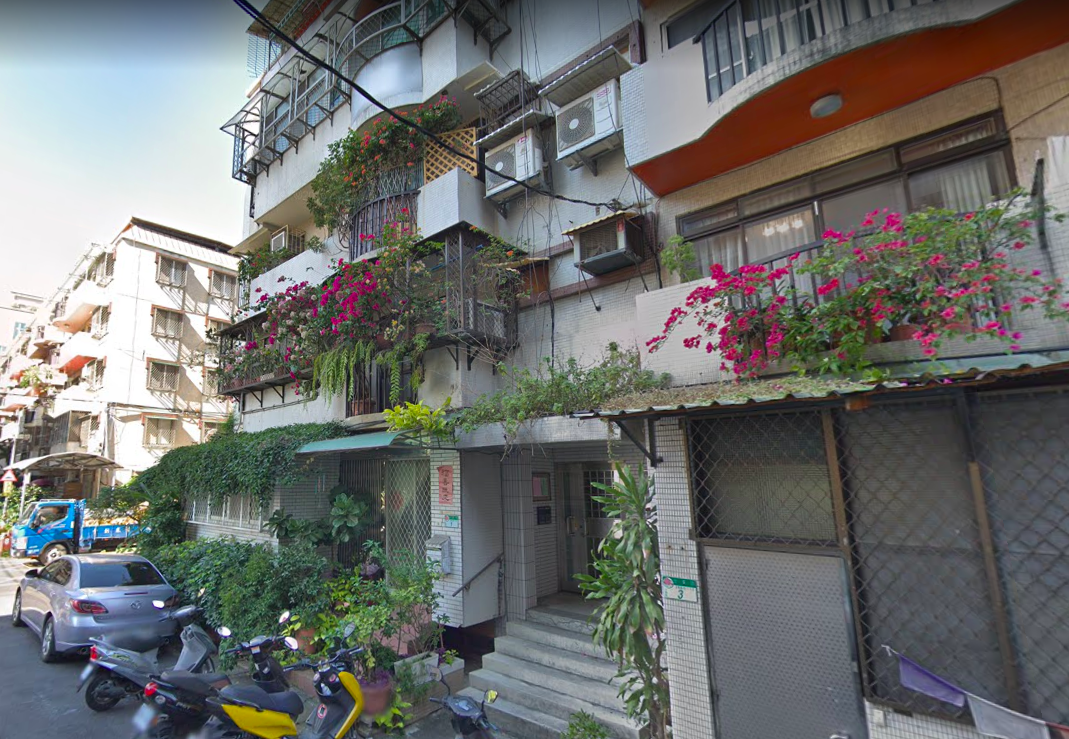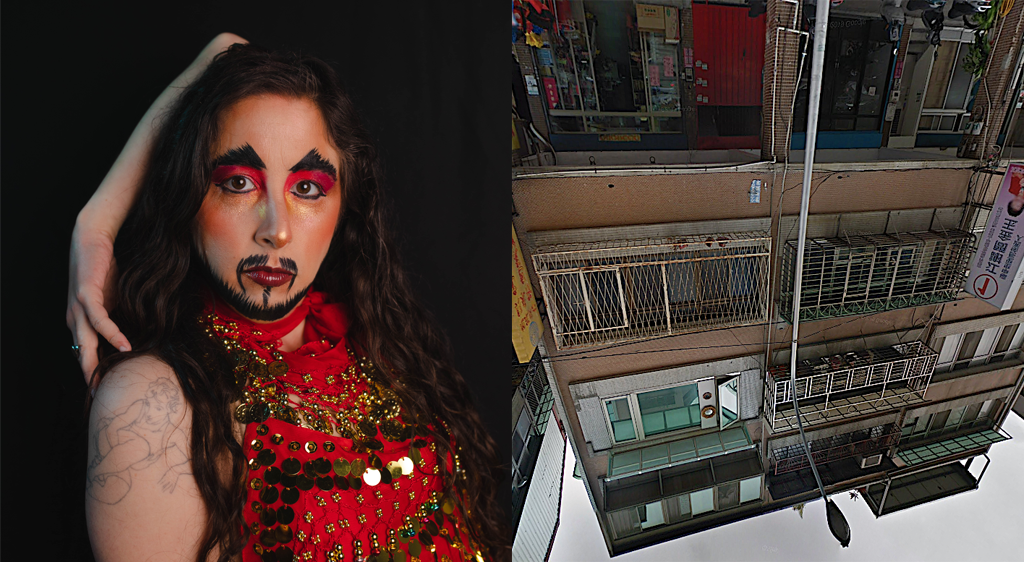Devendra Sharma is a Performing Diaspora Resident Artist at CountePULSE.
See him at weekend 3 of Performing Diaspora, November 19-22.

Suhani discusses her plans to go to the U.S. with her mother
After coming back from India in late August, I have been working hard with my group on the rehearsals of “Mission Suhani.” As soon as I landed in America, I had to prepare for the Work-in-Progress (WIP) showing at Counter Pulse, so even though I was totally jetlagged, I got my group together and started working on my freshly created script which I had co-written with my father in India.
It was a daunting task to train the new artists in this new script before the WIP show which was coming up in just five days. All of us met late at night on weekdays and worked for extended hours so that everybody could get a sense of the script and learn the traditional nautanki tunes. Only a few of these artists had worked with me on a nautanki show before; most were joining me for the first time to do a nautanki, so I had to teach them from scratch. Nonetheless, they are wonderful local Indian artists from the Bay Area and they worked with me not only during the rehearsals, but also afterwards at their homes (I recorded the nautanki songs for them in my voice, which they took back home and kept practicing, even while they were eating or working!). By the day of the first WIP on August 29th, everybody had a sense of the script, though they could not memorize all the lines. We were pretty nervous before the WIP about the audiences’ feedback, particularly since our piece was in its nascent stage of development.

Suhani entices Chaliya
However, the WIP show was a pleasant surprise. Although I had read the guidelines of the Work-in-Progress showing and the philosophy behind it (sent to me by Counter Pulse earlier), I had no idea that this process would be SO helpful in taking our piece in a positive direction. I found it amazing that Counter Pulse’s WIP guidelines said that to make it helpful for the artists and also protect their artistic vulnerability, the feedback after the work in progress would start with the artist himself/herself asking audiences specific questions to improve his or her piece. It was a great opportunity for the artist, like me, to ask the questions he wanted to ask rather than being lost in the questions of audience members. Sometimes, people who give feedback have genuine intentions to be helpful but may or may not have an idea of an artistic tradition.
Although I had thought about the value of the artist seeking specific feedback from audiences before the WIP show, I realized how helpful it actually was during the WIP feedback session. I was really worried about how to communicate a colloquial Hindi script talking about an Indian-American issue to an audience that largely speaks English. On one hand, I did not want to write my piece in English because it would have killed the traditional dimensions and the feel of nautanki, but on the other hand, I wanted to communicate a real social issue to the audiences. For that, it was critical that the audiences understood what the script was saying. So, at the first WIP show I kept the entire piece in Hindi and I just gave a background of the issue and story to audiences before the performance started and then we performed the whole piece in Hindi. While we were performing, I was really nervous that audiences might not be getting anything out of it and they might just be looking at this piece as an “exotic” artistic experience devoid of any actual meaning. So I was nervous as well as uncomfortable about the whole situation.
After the piece was over, during the feedback session, suddenly all my uncomfortable feelings went away as I found that audiences were very sympathetic towards my piece and were actually giving me suggestions to realize the full communicative potential of my piece! I asked them, “What should I do in order to break the language barrier?” There were many options thrown out by audience members, such as providing super-titles, or giving the full story and background in text in the performance program, or orally giving a background before the performance. I found these suggestions helpful, but I did not want super-titles to distract audiences’ attention from the performance. Also, giving a lecture before the performance about the performance did not appear to be a good option because I wanted my performance to speak for itself.
At this point of time, an idea came to me, which someone in the audience also came up with at the same time. The idea was to make the performance bilingual, where we save the essence of nautanki by keeping the colloquial Hindi, but also incorporate some supporting English dialogues so that the performance itself can connect to audiences. I thought that was a wonderful idea because it would save the oral communication tradition as well as the artistic elements of nautanki while communicating the story to the audience.

Chaliya shows the money!
After the WIP show, our group immediately got down to work and incorporated English dialogues in prose in between the Hindi sung pieces. That protected the operatic element of the performance and brought in some more drama in English. Everybody in the team came up with wonderful adaptations of their dialogues in English, which we then rehearsed. We went through many reiterations, and finally, after almost a month and a half of rehearsals, we felt comfortable with the new incarnation of the script. Of course, the biggest challenge was to keep the script within the time limit of 30 minutes because the original Hindi script was itself 30 minutes and we were adding new dialogues in English. So after adding the English dialogues, we had to do away with some Hindi pieces. However, after we finished editing, we felt the script became more tight and crisp and interesting.
Then came the second WIP show on October 18th. This was an even more pleasant experience. Why? Because all of our efforts were validated by the audience! It was so good to hear the audience’s comments in the second WIP. They were telling us, “Yes! We understood your script totally and we enjoyed it; the script flowed great.” After the WIP show, I think we don’t even need to put the story of our performance in text or an oral explanation in the beginning of the performance.
I cannot tell you how happy I am as an artist to cross the difficult to surmount communication barrier when performing for an audience belonging to a different culture, and still retain the wonderful artistic elements of my tradition. This is the best of both worlds!! In October, I also performed some of the scenes of “Mission Suhani” with some of my artists at the California State University-Fresno, where I teach. The response of the audience about the performance was similar to the audience at Counter Pulse. They confirmed that the mix of Hindi-English was working well to communicate the storyline and message of the piece.
I would definitely like to point out here that the “public process” of feedback followed by Counter Pulse in the Performing Diaspora program has been different than how I work outside of Performing Diaspora. I think this was the first time when I, as an artist, asked audiences questions in a structured format to make my artistic work more effective, and it worked!
An even more satisfying moment came when I shared the WIP show youtube video with my father and guru, Pundit Ram Dayal Sharma, in India. He was really thrilled to see what I did with our piece. He shared with me that he was also thinking about how to communicate this piece to American audiences. He told me that he was also thinking of making, not just the dialogues, but the singing parts of the script bilingual, and, to his surprise, he realized, watching the youtube video, that that’s exactly what we had done. We had composed some of the traditional nautnaki melodies in English, which is kind of ground-breaking for the tradition. My father had done this before only once, when he was music composer for the Theater Royal in London, where he composed music for a South Asian musical called “Heer Ranjha.” After that production, however, nothing much was done in this direction. Thus, my father was really happy that his son (in other words, the next generation of nautanki artists), is trying to make nautanki understood by a whole new type of audiences, very different from its traditional base.
I felt fortunate by my father’s response, because usually traditional gurus look down upon any attempt to incorporate contemporary concerns in the structure of their performance tradition. My father, on the contrary, I realized, is really progressive as a traditional guru. My father is one of the most respected exponents of this art form in India, and traditionalists respect him a lot. Thus, because I have my father/guru’s approval, I can rest assured that I am protected from the attacks of traditionalists while incorporating new and vital elements in my tradition according to the contemporary times. This solves the dilemma for me as an artist of dealing with the tension between tradition and change.
As I have shared before, my father and I are experimenting with nautanki in the Performing Diaspora festival on two levels: firstly, on the content level itself, as we are introducing contemporary themes in the script; secondly, on the structural level, by incorporating a different language (English) in the script, as I discussed above. I really want to thank Performing Diaspora for coming up with a format to give helpful feedback to the artists, while protecting their artistic vulnerabilities. In other words, the WIP shows have been immensely helpful for me as a Performing Diaspora program artist to take my performance piece to altogether another level.
I am attaching some photographs from our rehearsals of “Mission Suhani.” I have shared the process of developing this piece with you on these blogs, and these moments, captured on camera, will provide some kind of visual connection to my discussions. After reading my ruminations and seeing these photographs, I hope you will feel a part of “Mission Suhani.” See you at the shows! ☺

Chaliya gets a shock!!
Share This!
More Good Stuff
‘Border / Line خط التماس’ by Jess Semaan and Halim Madi & ‘Sa Ating Ninuno (To Our Ancestors)’ by Kim Requesto December 5-6 & 12-13,
Unsettled/Soiled Group is a group of East, Southeast, and South Asian diasporic movers, makers, and settlers on Ramaytush and Chochenyo Ohlone land. Unsettled/Soiled Group is led by June Yuen Ting, one of CounterPulse's 2022 ARC Performing Diaspora artists and will debut Dwelling for Unsettling alongside VERA!'s Try, Hye!, Thursday through Saturday, December 8-10 & 15-17, 2022
Try, Hye! by Vera Hannush/VERA! & Dwelling for Unsettling by Unsettled/Soiled Group December 8-10 & 15-17, 2022 // 8PM PT // 80 Turk St, SF




devendra!!
too funny — i mean the photos!! they are perfect, & kind of remind me of “manga,” the famous Japanese comic book form. Palak’s faces are priceless.
thank you for this description — rich with personality and specificity — of your challenges and discoveries. especially poignant is how you wrote:
“my father and I are experimenting with nautanki in the Performing Diaspora festival on two levels: firstly, on the content level itself, as we are introducing contemporary themes in the script; secondly, on the structural level, by incorporating a different language (English) in the script…”
it’s wonderful to think of your father, the master!, as being “in PD” too!! I’m very moved to hear that he got to see the evolution of his script through the youtube of Work in Progress! How amazing is that?? from SF to rural India via YouTube. your father is very 21st century.
thank you for giving of yourself so much — through your artistry and vision, commitment to contemporary social concerns, your family heritage and the teaching you gave to all the actors in your cast who were willing to “learn Nautanki from scratch!”
have a rockin’ weekend!